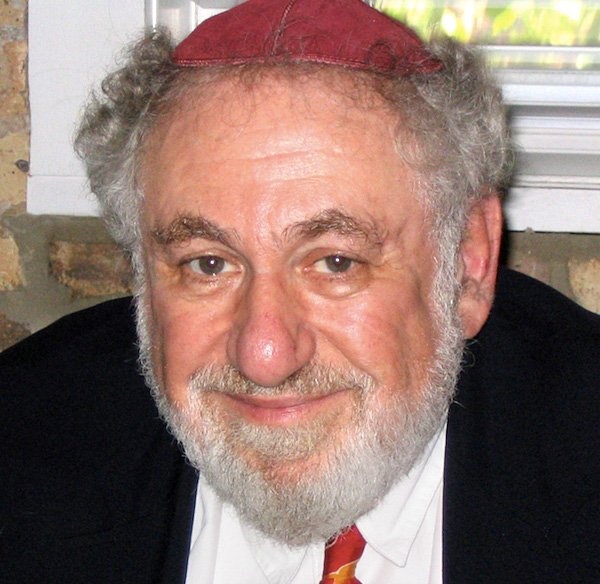Columbia College | Columbia University in the City of New York
In Memoriam: Rabbi A. Bruce Goldman, Former University Jewish Chaplain

Rabbi A. Bruce Goldman, the University’s Jewish chaplain from 1967 to 1969 and a controversial figure who “consistently defied convention,” died from complications of COVID-19 on April 2, 2020. He was 84 and lived in New York City.
Goldman, who also went by “Rabbi Bruce,” was a Reform rabbi, on the most progressive edge of the movement. He first came to national attention with his defense of the right of male and female undergraduates to cohabitate in dormitory rooms, which was then in violation of some colleges’ rules. His most well-known action, though, came during Columbia’s student protests in 1968: When police prepared to attack the student sit-ins, Goldman placed himself as a nonviolent intervenor between the police and students; the police beat him semi-conscious. He was not rehired at the end of his two-year term, but stayed on at Columbia as an advisor to Jewish students until the mid-’70s.
Goldman continued his activism, and was arrested in 1970 along with another member of the Columbia Radical Jewish Union after disrupting services at Temple Emanu-El to protest the Vietnam War (the charges were later dismissed). He also hosted a radio program in the ’70s, Up Against the Wailing Wall, on the progressive New York radio station WBAI. In 1972, Goldman set up the Center for Creative Jewish Living in Morningside Heights. In 1988, he appeared on Geraldo Rivera’s TV talk show with Roy Innis, the national chairman of the Congress of Racial Equality; the now-notorious episode ended with a brawl with white supremacists and a broken nose for Rivera. In 1994, Goldman placed second in the “Funniest Rabbi” contest at the comedy club Stand Up New York.
In later years, Goldman made his living performing marriages, often of interfaith couples, and providing counseling for children of Holocaust survivors and others. When asked by The New York Times in 1998 why he was willing to perform weddings for people of all faiths, he said, “People have a right to consecrate their love and friendship without being asked to surrender their values, heritage, tradition or children.”
Issue Contents
Published three times a year by Columbia College for alumni, students, faculty, parents and friends.
Columbia Alumni Center
622 W. 113th St., MC 4530, 6th Fl.
New York, NY 10025
212-851-7852
cct@columbia.edu
Columbia Alumni Center
622 W. 113th St., MC 4530, 4th Fl.
New York, NY 10025
212-851-7488
ccalumni@columbia.edu

